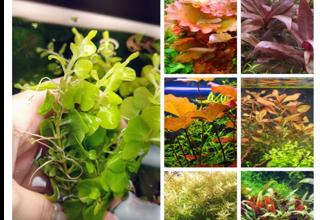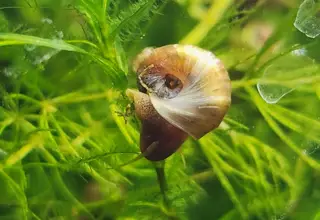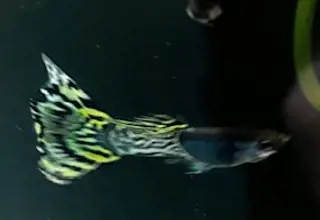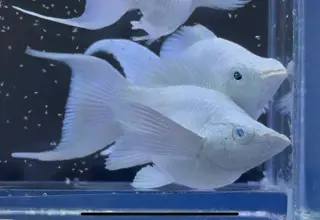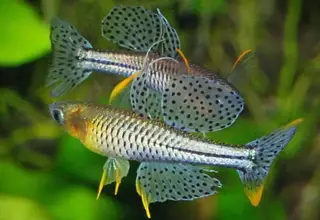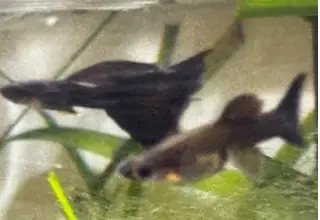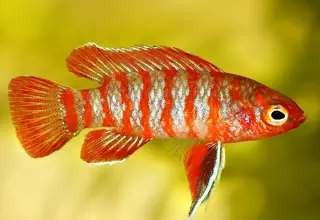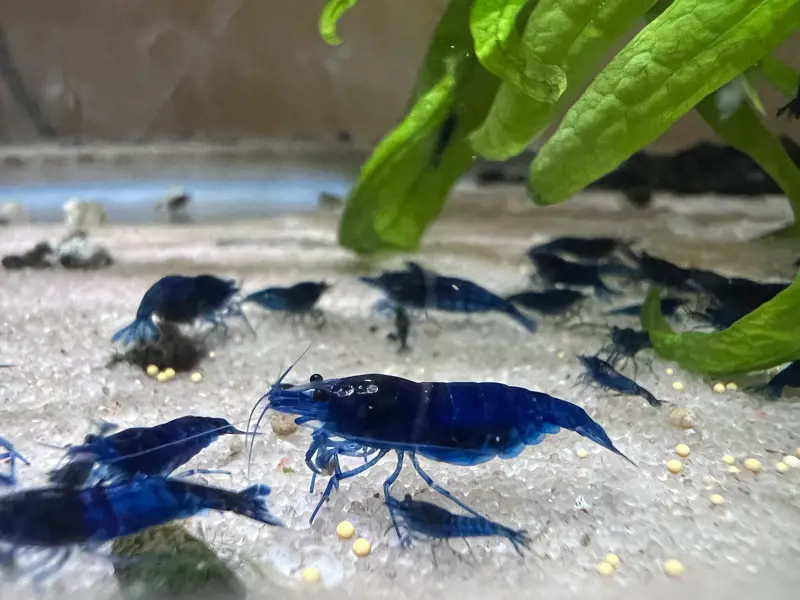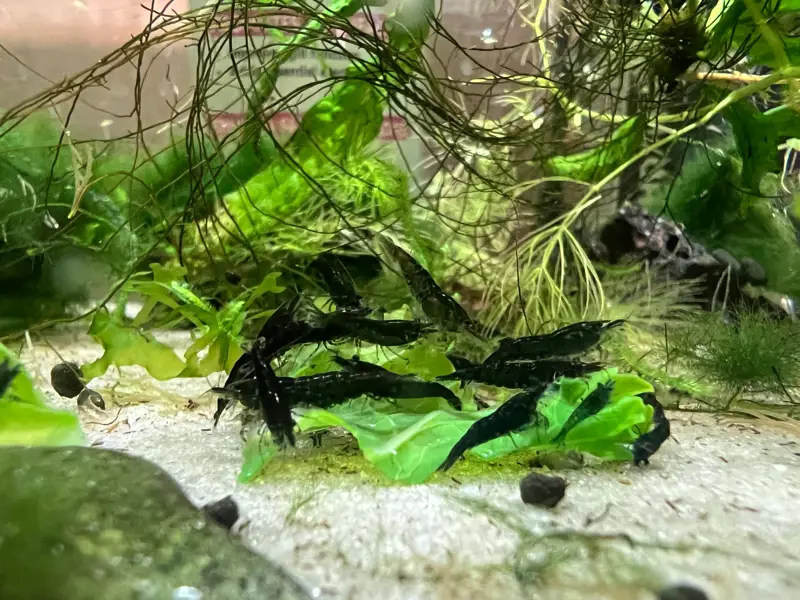10 Most Popular Aquarium Fish
Posted by on 2/12/2024
Whether you’re in a local fish store, shopping online, or wandering through a chain pet store, there are certain fish that you can almost always count on finding for sale.
Throughout the years, certain species of aquarium fish have caught the attention of new and experienced hobbyists, and it’s for good reason. In this post, we’re going to count down the most popular aquarium fish, and we’ll even discuss why some of these species are so popular. Let's begin!
Why These Fish Are So Popular
The main reasons for the popularity of these fish are due to their ease of difficulty when it comes to breeding, cost, and ease of care.
Many of the most commonly found fish in the hobby breed readily in captivity, and a pregnant female fish is capable of laying hundreds of eggs! This creates a huge amount of supply, ultimately driving down costs. Additionally, these fish are some of the easiest to care for and are not nearly as difficult to care for when compared to other types of freshwater and saltwater fish.
Top 10
Now that we’ve discussed what makes these fish so popular, let’s get into our top 10!
Guppies
Guppies make a great choice for beginners new to the hobby. But fishkeeping newcomers may not realize that guppies are live-bearing fish. All it takes is a few guppies, and next thing you know - you’ll have hundreds of these fish swimming around your tank! This can be quite problematic, as your water quality will degrade with such a large amount of fish. Always have a plan in place in case your guppy population explodes.
While many of the guppies you’ll find in pet stores look beautiful, there is a large variety of different color strains. Many breeders take pride in producing some of the most brilliant guppies seen in the hobby, and you may even be able to find a few for sale in our guppy category!
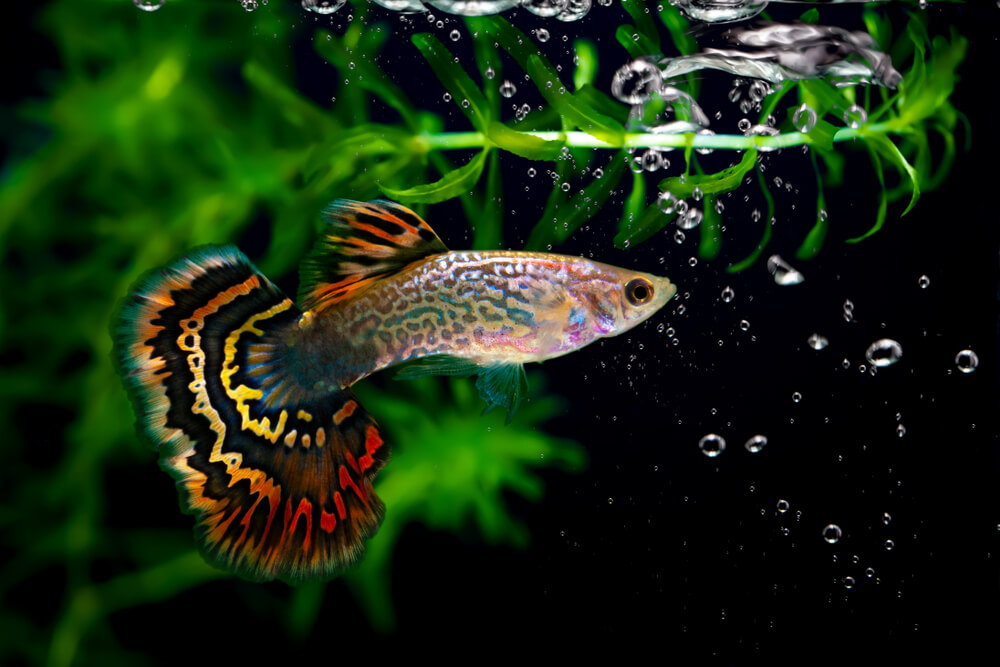
Bettas
Probably one of the most misunderstood fish, the Betta fish is one of the most popular aquarium fish seen in the hobby. Native to Thailand, these fish have earned the nickname “Siamese Fighting Fish”, due to the male's aggressive behavior towards other males.
Unfortunately, these fish are rarely given an adequate tank setup, due to a lack of awareness and unethical marketing by some of the larger pet chain stores. Betta fish should be active and playful and should be provided a 5-gallon tank, heater, and live aquatic plants at a minimum. Two male bettas should never be housed in the same aquarium.
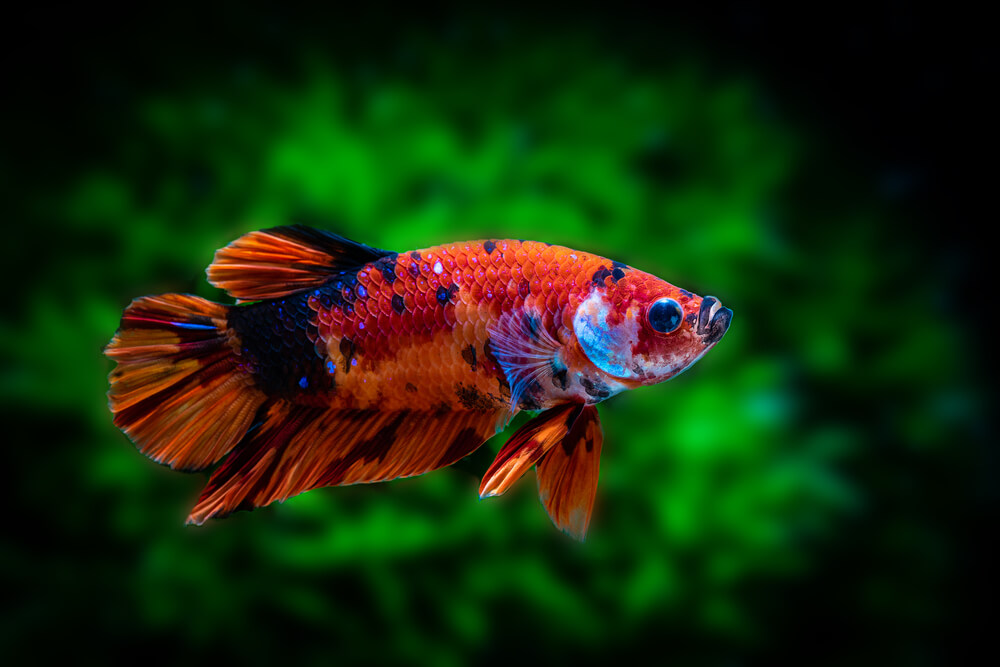
🛒 Shop Freshwater Fish on Light Fish
Neon Tetra
Next up on our list is the Neon Tetra. Native to the Amazon, these fish are often pursued for their bright colors and ease of care, making a small group of them a good choice for beginners. They’re quite beautiful, and when provided a 10-gallon tank with plenty of plants, hobbyists should have little issue caring for a group of these fish.
Neon Tetras are just the tip of the iceberg when it comes to tetra fish, ember tetras, blue emperor tetras, and green neon tetras are just a few of many tetra options available to hobbyists.
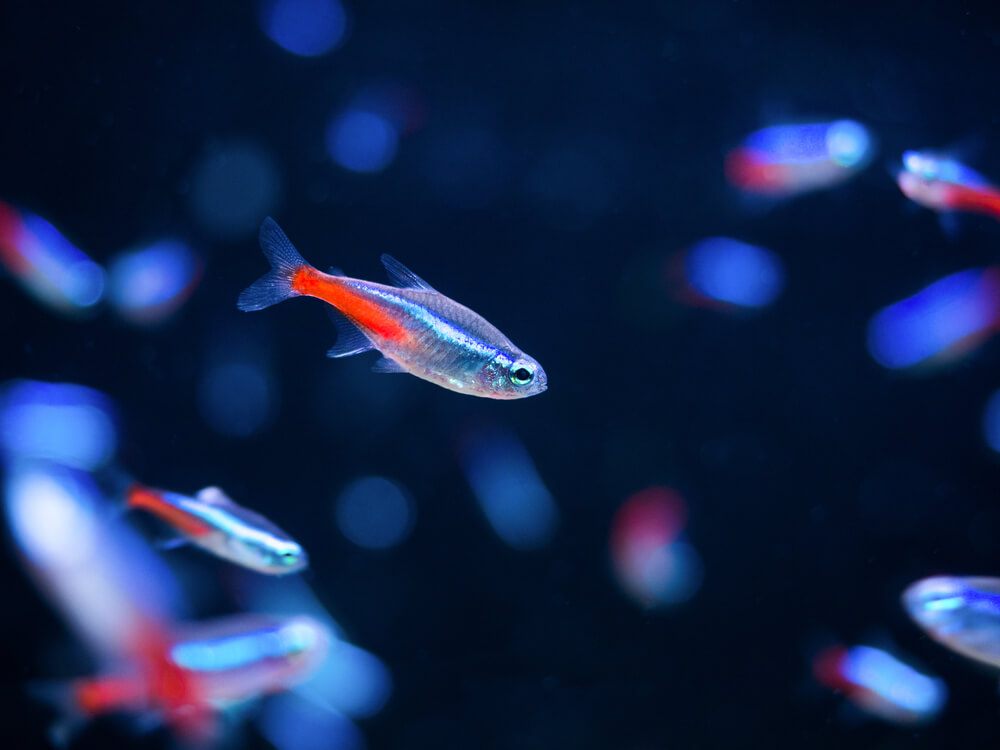
Goldfish
The decision to own a Goldfish should not be taken lightly. While these fish are incredibly popular due to their perceived ease of care (some think they can survive in a small bowl) - nothing could be further from the truth.
These fish are incredibly long-lived, and on average can live between 10-15 years when properly cared for. Additionally, some goldfish species can grow to be quite large, and the small fish you purchased at the store can easily grow so large that it will require a 75+ gallon aquarium! We strongly recommend doing research before diving into the world of goldfish.

White Cloud Mountain Minnows
Native to China is the White Cloud Mountain Minnow. These fish are unique in that they’re capable of surviving in cold water, a trait that makes them an attractive option for hobbyists who don’t have an aquarium heater on hand.
These fish are incredibly active, constantly playing with one another throughout the aquarium water column. Their red-tipped fins make them a popular fish for those who can find them for sale.
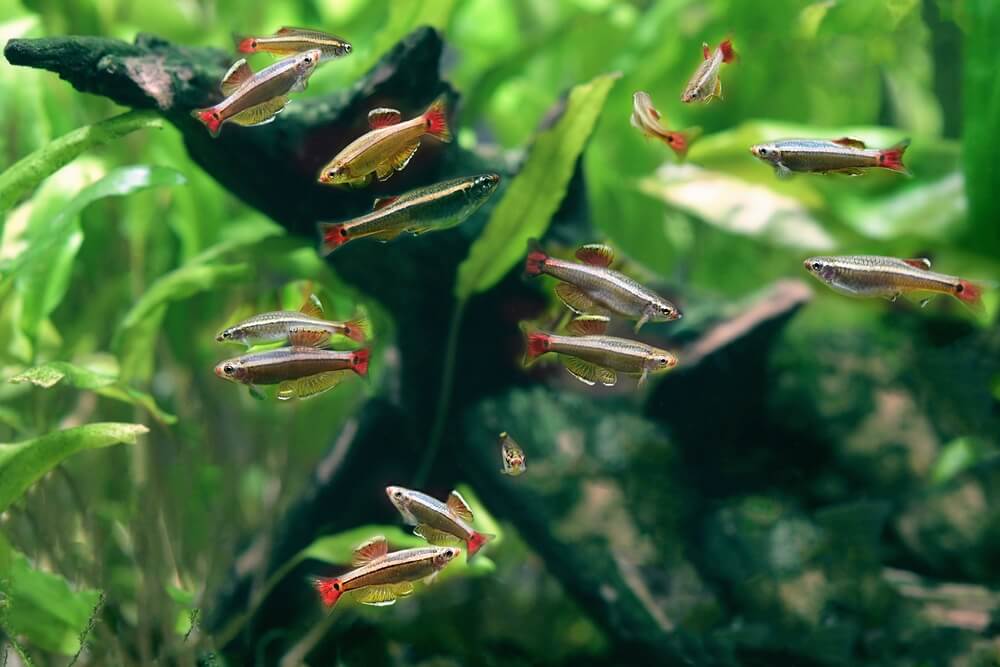
Platies
Similar to guppies, platies are live-bearing fish, and hobbyists should be aware that an aquarium with a male/female pair can easily result in dozens of additional platies. You should always have a backup plan for such a scenario.
Platies are without a doubt attractive fish, resulting in their popularity. We’ve seen dozens of different colors, such as the bumblebee platy and orange speckled Mickey Mouse platy, which can add a pop of color to any tank.
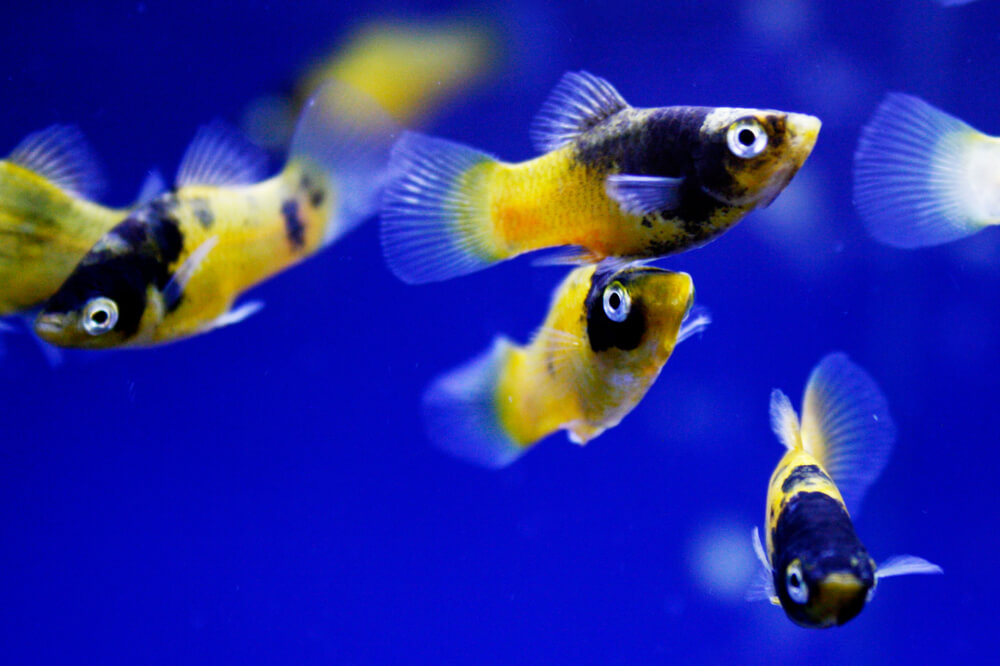
GloFish
GloFish have a bit of a controversial reputation. Their fluorescent colors are the result of genetic editing, and interestingly enough the process was patented - only the company GloFish is legally allowed to sell these fish to authorized retailers. The GloFish brand is owned by Spectrum Brands, the Wisconsin-based holding company that owns Tetra, Iams, Instant Ocean, Nature’s Miracle, Black and Decker, George Foreman, and many more well-known brands. It’s easy to understand why these fish are so popular, their bright fluorescent colors will easily catch the attention of any passerby.
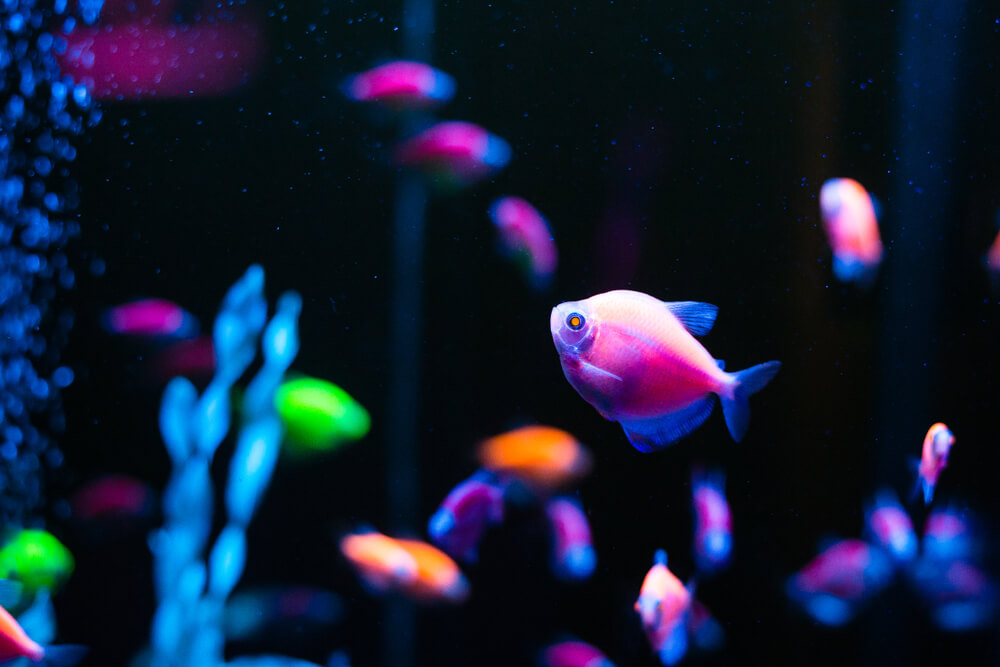
Gouramis
Native to Southeast Asia, Gouramis sport an interesting appearance, and betta fish enthusiasts might notice a few similarities. Gouramis are labyrinth fish, meaning they’re able to gulp air from the surface, a necessity for them to survive in the shallow waters of their native habitat. Bettas are descendants of these unique fish.
Gouramis are typically about 3 inches in length and have unique “feelers” similar to a cat, that they use to sense their environment. These fish are easy to breed in captivity, resulting in their popularity.
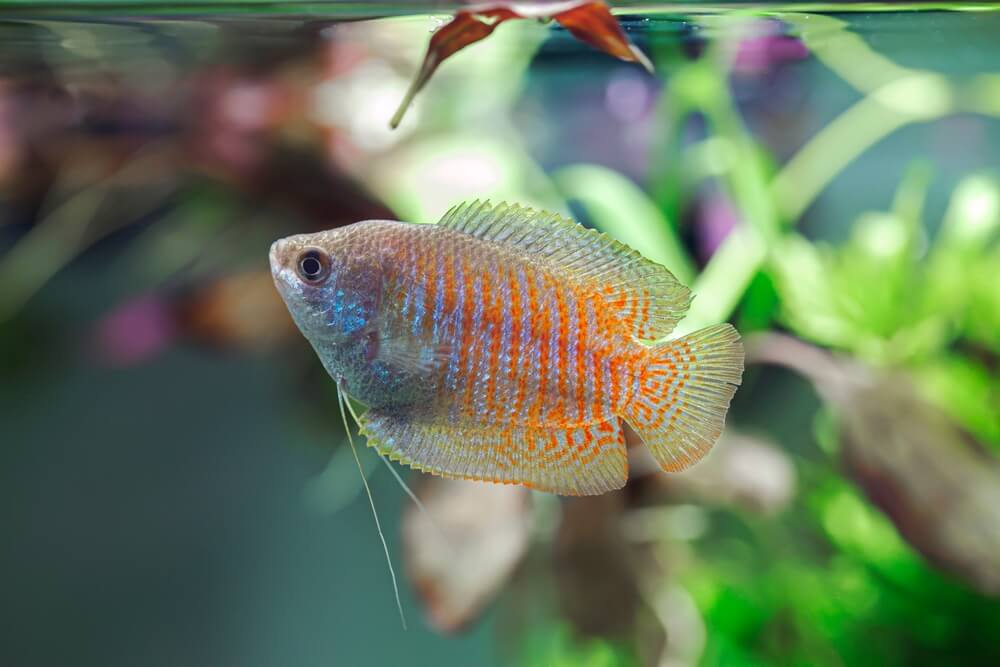
Tiger Barb
Similar to Gouramis, Tiger Barbs are another easy-to-breed fish that are often sought after for their “tiger-like” appearance. Black bands, outlined in a bright orange coloration, are present throughout the body of the fish. However, hobbyists new to keeping barbs should be aware that these fish can be quite aggressive.
These fish are most aggressive when their school size is too small. You’ll want to have a minimum of at least 6 of these fish in your tank. Due to this requirement, you’ll need at least a 30-gallon aquarium to house these fish.
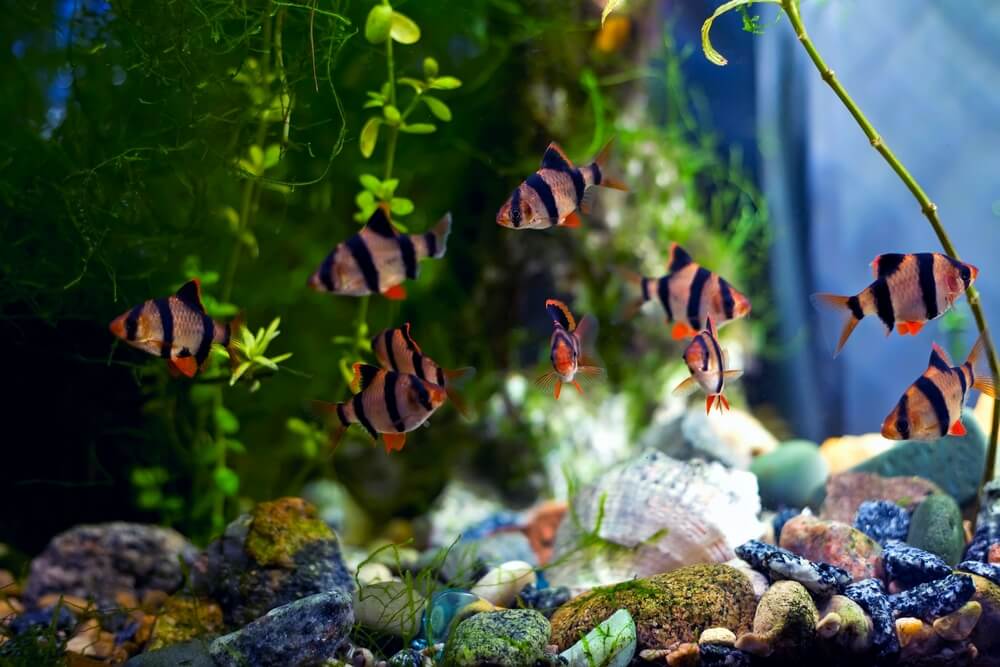
Siamese Algae Eaters
We have a love/hate relationship with Siamese Algae Eaters. Their temperament and preference for algae often varies between individual fish, so it can be hard to predict exactly how one will behave in your aquarium. Some hobbyists will praise these fish for ridding the hair algae in their tanks, while others complain that their Siamese Algae Eaters are always bullying other tank mates!
We prefer otocinclus as an algae eater species (and for those looking for a rare oto - the bumblebee oto is an awesome choice!) but SAE’s tend to be much more common. If you’re up for the challenge of keeping a few Siamese Algae Eaters, then you’ll love all that these fish have to offer.
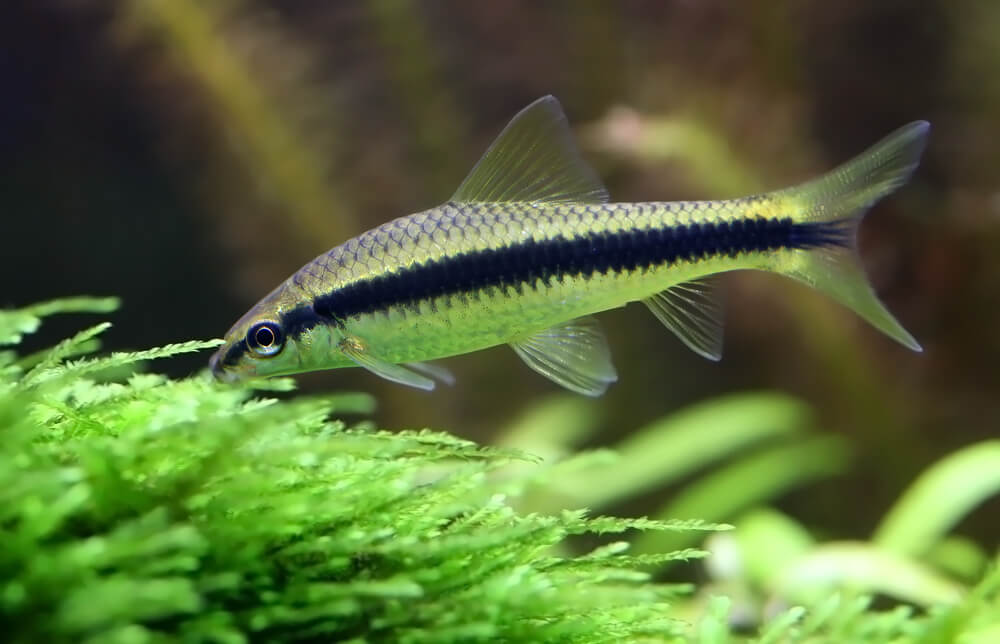
Conclusion
That concludes our list of 10 of the most popular aquarium fish. What do you think about our list? Were there any fish that you thought should have made the cut? Let us know in the comments, and be sure to visit our marketplace, where you can buy and sell with aquarium hobbyists just like yourself!
February's Giveaways on Light Fish

